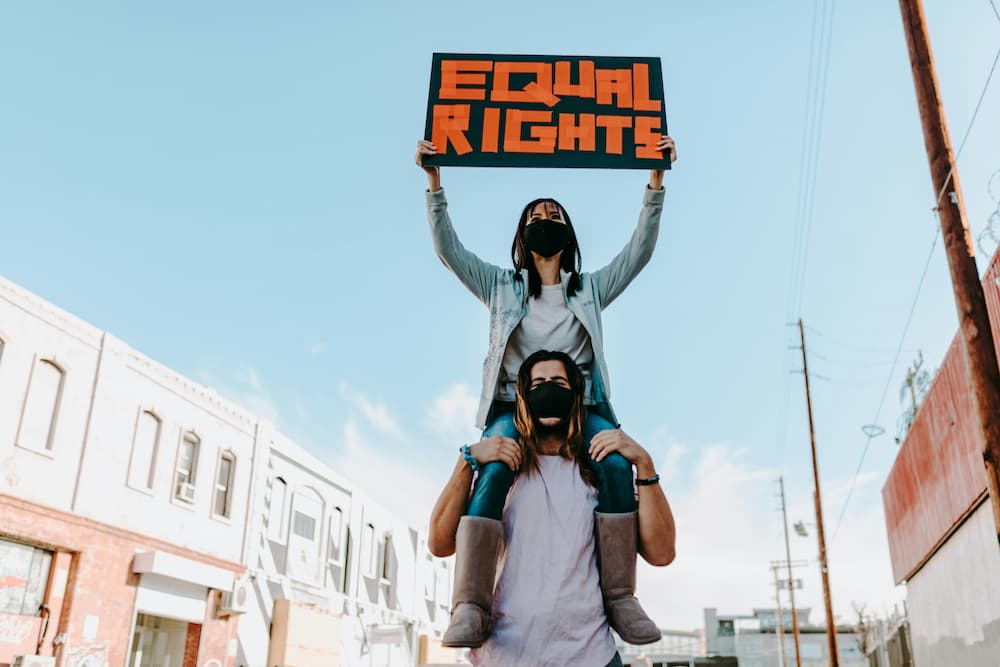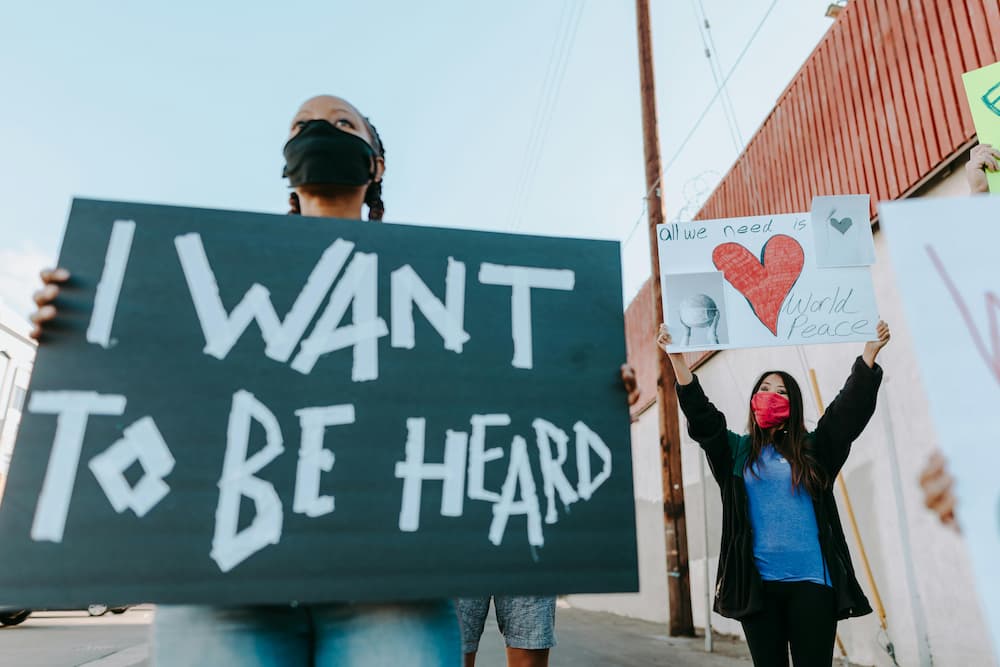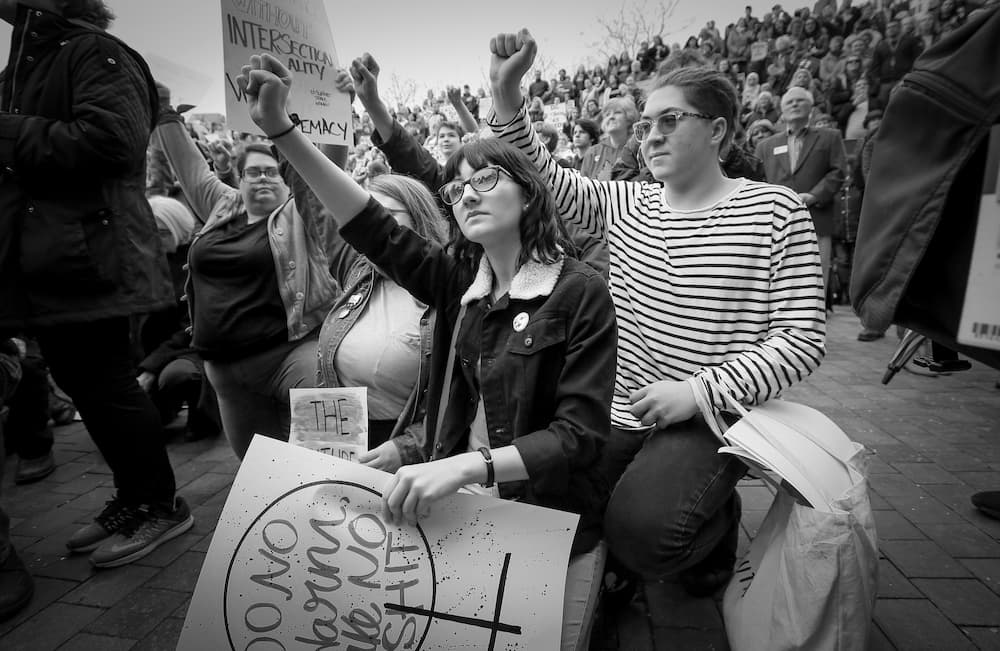If you’ve been walking around this week feeling lighter — almost like we’ve taken a collective dose of Lexapro — you’re not imagining it. For so many people, Tuesday’s election results brought a real sense of relief and joy. Candidates who represent inclusion, progress, and compassion won across the country.
From Zohran Mamdani’s victory to women becoming governors in 14 states, from the first Muslim woman governor to a trans person elected to Congress — it feels like a turning point. Something many people have been aching for: a glimpse of what a more just, humane future might look like.
But with that hope often comes another feeling: fear. The quiet worry that it could all slip away again.
Begin Therapy For Political AnxietyWhy Hope After the Election Can Feel So Scary
When you’ve been bracing for impact for years — through political chaos, ongoing injustice, and so much collective trauma — hope can feel unfamiliar, even dangerous.
For many people, the nervous system doesn’t fully trust safety yet. If you’ve spent years scanning the news for what might go wrong, that hypervigilance doesn’t turn off overnight. Your brain is still trying to protect you from disappointment, loss, or betrayal.
This mix of relief and dread is completely normal. It’s what happens when your body is finally exhaling after holding its breath for too long.

Why We Struggle to Trust the Good
Trauma — whether personal or collective — teaches us that joy can be followed by loss. The brain learns to associate safety with danger, hope with heartbreak.
That’s why even when things do go right — when justice wins a round, when representation expands, when compassion gets a platform — it can feel too good to trust.
You might notice thoughts like:
- “I don’t want to get my hopes up again.”
- “What if it all reverses next time?”
- “We’ve been here before — what if it’s temporary?”
These are protective thoughts. Your mind is trying to manage expectations to spare you from future pain. But in doing so, it can also rob you of joy in the present moment.
How Trauma Shows Up After Political Change
When we talk about trauma in therapy, we often focus on fear, sadness, or anger. But hope itself can be triggering for people whose nervous systems have learned that good things don’t last.
You might notice:
- Feeling both energized and uneasy at the same time
- Having trouble relaxing, even with good news
- An urge to keep checking headlines, just in case
- A sense of guilt for celebrating when others are still suffering
All of this makes sense. Political trauma is real. Living through years of instability and injustice conditions your body to stay alert — to expect disappointment. The very moment things start to feel better, that old hypervigilance can rush back in.
Begin Trauma TherapyHow to Hold Onto Hope Without Losing Your Ground
Here are a few trauma-informed ways to help your nervous system stay steady as you process this week’s emotional whiplash.
1. Let Your Body Catch Up to the Moment
Relief is a physical experience. After years of bracing, your body might need time to register safety. Try grounding yourself in small sensory moments: feeling sunlight on your face, taking deep breaths, or noticing something beautiful. These small acts remind your brain that it’s okay to relax.
2. Name the Good Things Out Loud
Our brains are wired to notice danger more than safety. So when progress happens — representation, policy change, inclusion — name it. Say it to yourself, write it down, celebrate it with people who get it. This helps rewire the brain to notice safety cues and make hope feel a little more familiar.
3. Let Hope Be Gentle, Not All-or-Nothing
You don’t have to jump from vigilance to blind optimism. It’s okay to hold both: gratitude for what’s changing and awareness that the work continues. Think of hope not as a guarantee but as a practice — one that strengthens your resilience.
4. Remember That Collective Change Takes Time
Trauma makes us crave certainty — we want the whole world to be fixed now. But progress often unfolds slowly, in waves. Remember: what’s happening now is not an accident. It’s the result of years of organizing, speaking up, and showing up. Even when momentum shifts, those efforts don’t disappear.
5. Connect With Community
Individual healing happens in relationship, and collective hope works the same way. Share this moment with others who care about justice, empathy, and healing. It’s easier to stay hopeful when you’re surrounded by people who remind you why you believe in something better.
How Trauma Therapy Can Help You Stay Grounded in Hope
If you notice your nervous system can’t quite rest — even in moments of progress — therapy can help.
Trauma therapy, including approaches like EMDR and IFS, helps your brain and body process old fear responses so that you can stay open to safety when it finally arrives.
You can learn to:
- Recognize when your nervous system is stuck in fight, flight, or freeze
- Gently soothe hypervigilance so joy feels safer
- Stay connected to your values instead of reacting from fear
- Build emotional resilience for the inevitable ups and downs ahead
Working with a therapist can help you integrate both the hope and the fear — so you can keep showing up for change without burning out.

What It Means to Feel Hope and Fear at the Same Time
Feeling hopeful and scared isn’t a contradiction. It’s what healing looks like.
Hope doesn’t mean denying reality or pretending everything’s okay. It means believing that something good is possible — even if you’ve been hurt before.
So if your heart feels both expanded and protective this week, that’s okay. You’re just learning how to live in a body that’s no longer only bracing for impact.
Final Thoughts: Let This Be a Beginning
This week’s victories — Mamdani, prop 50, the women governors, the Muslim and trans leaders breaking barriers — are reminders that the story is still unfolding.
If you’re feeling joy, let yourself feel it. If you’re afraid it won’t last, that’s okay too. Both feelings can coexist.
The truth is, healing from trauma — personal or political — isn’t about erasing fear. It’s about letting hope exist alongside it.
You don’t have to brace for the next blow. You can let yourself rest, breathe, and take in what’s good — even if it’s imperfect or fragile.
Hope isn’t naive. It’s a nervous system finally remembering what safety feels like.
If you’d like help in healing your trauma, reach out for a free 15 minute consultation today.
Schedule A Free Consultation
Emma Kobil is a trauma therapist practicing online with feminist women and thoughtful couples in Colorado and Florida. Her philosophically informed therapeutic approach focuses on helping creative and perfectionist women and couples heal. Learn more about Emma, or schedule an appointment, at mindfulcounselingdenver.com.









